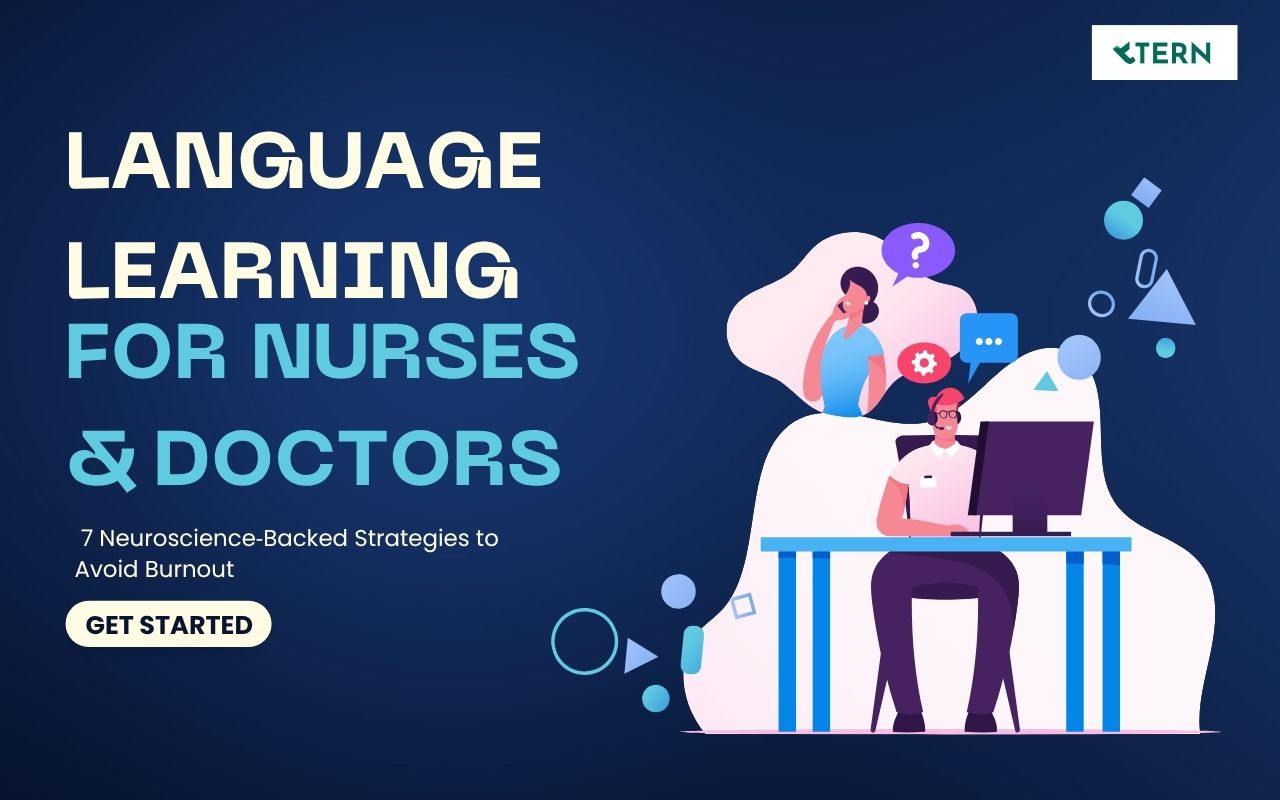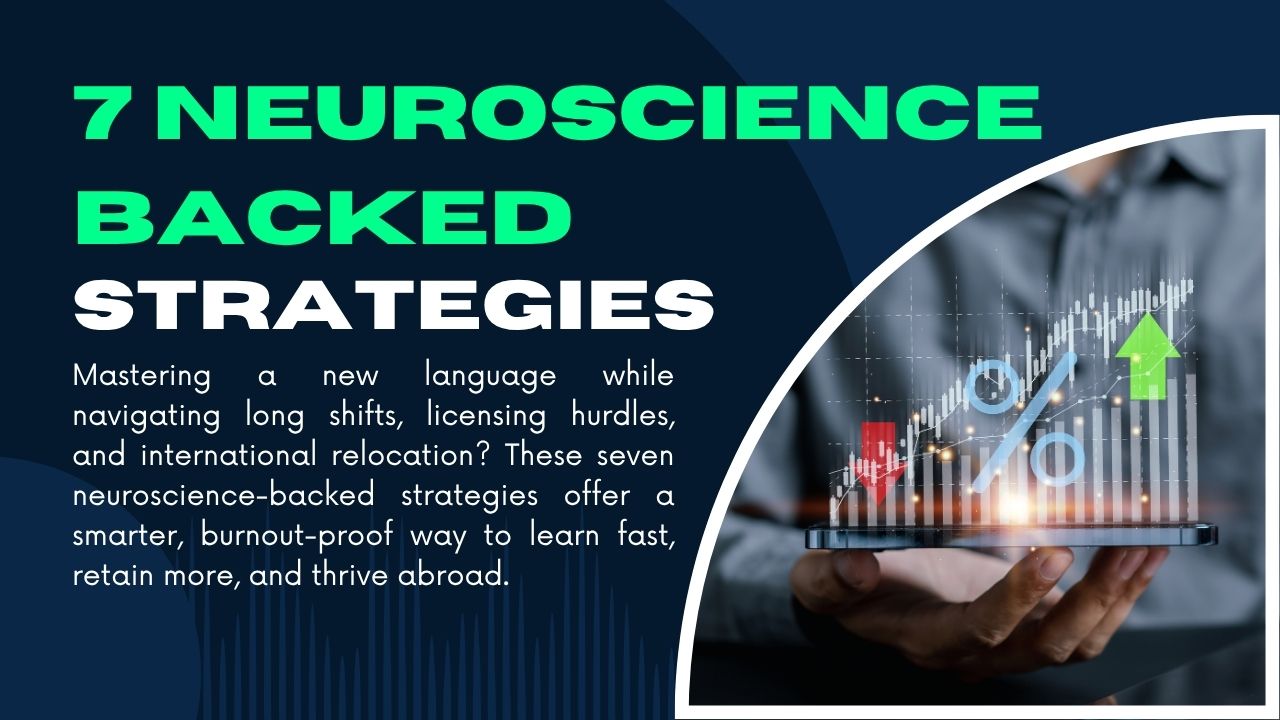TERN
July 22, 2025
•
Language Learning for Nurses & Doctors: 7 Neuroscience‑Backed Strategies to Avoid Burnout

Learning a new language while juggling long shifts, licensing exams, and the stress of relocating abroad? You're not alone — and you're not doing it wrong. For nurses and doctors preparing to work in countries like Germany, the UK, or the Gulf, mastering the local language isn't optional. It's the key to professional success, patient safety, and daily life.
But cramming grammar between night shifts won’t cut it. What you need is a smarter, not harder, approach. These seven neuroscience-backed strategies are designed for healthcare professionals who don’t have time to waste — and can’t afford to burn out.

1. Use Spaced Repetition, Not Cramming
Cramming helps you pass tests, not remember phrases on a hospital floor.
Spaced repetition — revisiting content at increasing intervals — helps transfer vocabulary from short-term to long-term memory. Tools like Anki or Quizlet make this easy to integrate into your daily routine, even during short breaks.
2. Link Words to Context, Not Translations
Don’t just memorise “Handschuh = glove.” Instead, imagine saying it while putting gloves on a patient.
Connecting new vocabulary to actions, images, or situations increases retention. For clinical terms, pair them with real procedures or visual cues.
3. Talk, Don’t Just Listen
Passive input (like watching videos) can lull you into a false sense of fluency.
Language is a muscle — and speaking is how you train it. Prioritise active speaking through language exchanges, AI chatbots, or even solo shadowing (repeating phrases out loud as you hear them).
4. Learn in Microbursts, Not Marathons
Short, focused sessions (10–15 mins) spaced throughout the day are more effective than long weekend cram sessions.
Try reviewing flashcards during transit or listening to dialogues while prepping for a shift.
5. Make Mistakes — On Purpose
Perfectionism kills fluency.
Intentionally testing yourself and making errors helps your brain flag what’s important. Embrace correction — especially in speaking practice. Mistakes made in conversation are more likely to stick.
6. Use Language to Think, Not Just Speak
Try thinking in the target language during everyday routines: "Where are my gloves?" becomes “Wo sind meine Handschuhe?”
This helps build automaticity and reduces the need to mentally translate everything under pressure.
7. Prioritise Recovery — Cognitive and Emotional
Fatigue destroys memory. If you’re exhausted, studying harder won’t help.
Prioritise sleep, hydration, and mental breaks. Language acquisition is cognitive labour — and your brain needs rest just like your body does after a double shift.
Conclusion: You’re Not Falling Behind — You’re Doing a Hard Thing Well
Language learning as a healthcare worker abroad isn’t a race; it’s a process. You’re balancing high-stakes responsibilities in two (or more) languages — and you’re not alone.
By using evidence-based strategies and honouring your limits, you’ll reach fluency in a way that’s sustainable, not self-sacrificial.
Your patients need your voice. Make sure it’s one you’ve trained — with intention, not exhaustion.
Ready to start your language journey — and your global career?
- Struggling with German, English, or Arabic? Our team can guide you through the right courses, practice strategies, and exams.
→ Message us on WhatsApp to get started. - Already preparing to relocate?
→ Sign up on our AI-powered platform to build your profile, get matched with jobs, and track your progress. - Need help with language training and job placement?
→ Fill out our form here to speak to a counsellor today. - Want to work behind the scenes at TERN?
→ Explore open roles on our Careers page.
Whatever your stage — beginner or almost fluent — we’ll help you speak with confidence and work with purpose.
Join thousands of nurses and doctors transforming their futures through language — and TERN.





.jpg)

